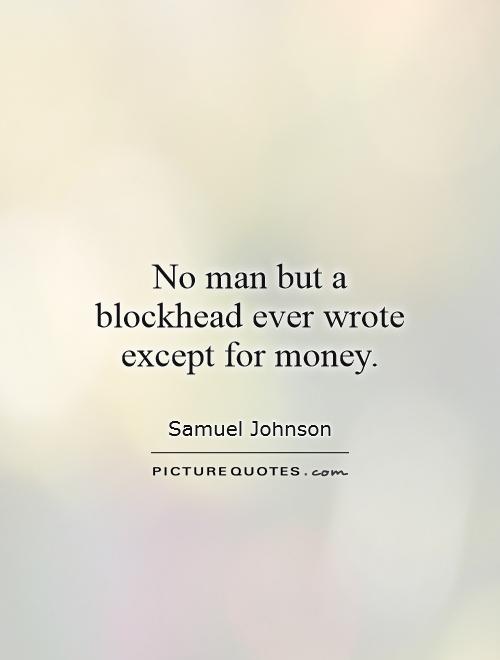
No man but a blockhead ever wrote except for money

No man but a blockhead ever wrote except for money
Samuel Johnson, a renowned English writer, critic, and lexicographer, is often quoted as saying, "No man but a blockhead ever wrote except for money." This statement has sparked much debate and discussion among literary scholars and writers alike. Some argue that Johnson's words are a harsh indictment of the commercialization of literature, while others see it as a pragmatic acknowledgment of the economic realities of being a writer.Johnson's statement can be interpreted in several ways. On one hand, it can be seen as a critique of writers who prioritize financial gain over artistic integrity. In Johnson's view, writing solely for money is a sign of intellectual laziness and lack of passion for the craft. He believed that true writers should be motivated by a love of language and a desire to communicate their ideas, rather than by the pursuit of profit.
On the other hand, Johnson's words can also be viewed as a recognition of the practical challenges faced by writers in his time. In the 18th century, many writers struggled to make a living from their work, as the literary marketplace was highly competitive and often unpredictable. For these writers, writing for money was not a choice, but a necessity in order to support themselves and their families.












 Friendship Quotes
Friendship Quotes Love Quotes
Love Quotes Life Quotes
Life Quotes Funny Quotes
Funny Quotes Motivational Quotes
Motivational Quotes Inspirational Quotes
Inspirational Quotes